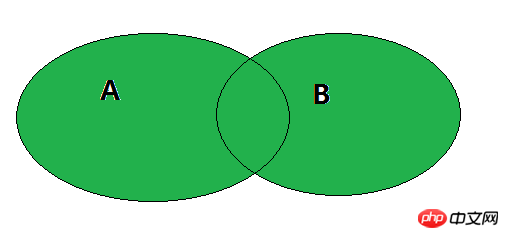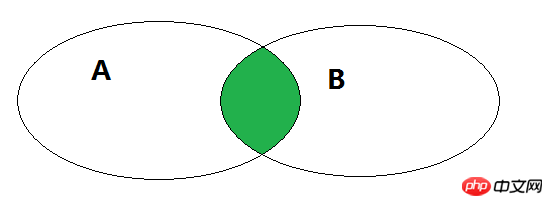集合的并集是合并集合的项,如下图所示:

List<int> ls1 = new List<int>() { 1,2,3,5,7,9 };
List<int> ls2 = new List<int>() { 2,4,6,8,9,10};
IEnumerable<int> unionLs = ls1.Union(ls2);foreach (int item in unionLs)
{
Console.Write("{0}\t", item);
}
集合的交集是取集合的共同的项,如下图所示:

List<int> ls1 = new List<int>() { 1,2,3,5,7,9 };
List<int> ls2 = new List<int>() { 2,4,6,8,9,10};
IEnumerable<int> intersectLs = ls1.Intersect(ls2);foreach (int item in intersectLs)
{
Console.Write("{0}\t",item);
}
集合的差集是取在该集合中而不在另一集合中的所有的项,如下图所示:

List<int> ls1 = new List<int>() { 1,2,3,5,7,9 };
List<int> ls2 = new List<int>() { 2,4,6,8,9,10};
IEnumerable<int> exceptLs = ls1.Except(ls2);foreach (int item in exceptLs)
{
Console.Write("{0}\t", item);
}
以上是C#中关于List<T>的并集与交集以及差集解析的详细内容。更多信息请关注PHP中文网其他相关文章!




